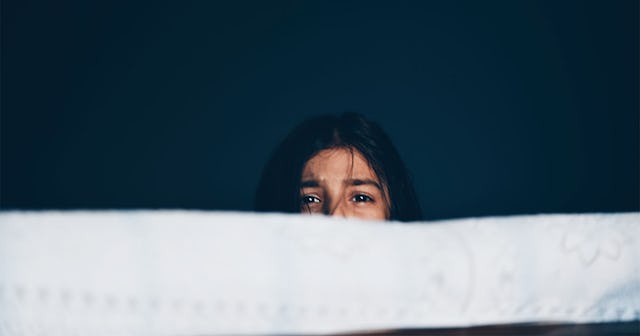I Was A Victim Of Child Abuse; This Is How I Became A Survivor

My mother never hit me. She never struck me, and while my father (regularly) whipped me with his brown leather belt, I never considered him an abuser. He was angry and temperamental, sure. But he was a parent of the ’80s, embodying dads of a different time. However, when I began therapy in the summer of 2020, shortly after my mother’s passing — when years of traumatic memories rushed forward and I became paralyzed by nightmares and flashbacks — I realized I was the victim of mental, physical, and emotional abuse, by him and my mother. My childhood was punctuated by damnation, manipulation, exploitation, put downs, and neglect.
Of course, I’ve long known my upbringing wasn’t “normal.” I mean, facets of it were. I was born in Florida in 1984 to a “good” family. I had a mother, father, brother, and dog. We lived in a gated community, complete with an eight-foot high privacy fence and above ground pool. And early on, everything seemed rosy. From the outside looking in, things were good. We had the perfect, nuclear, middle class life. But sometime between my fifth birthday and sixth, there was a change, and whether it was physical, sexual, or emotional in nature, I do not know. What I do know is that one day I was comfortable and carefree, a singing, dancing, happy-go-lucky kid. And the next day my head was turned down.
My voice had been altered forever. I was silenced by abuse — and I stayed that way for years, from age six to age 36. Every fiber of my being was crafted and created in this environment, in a place and space where I wasn’t respected, honored, cared for, or loved.
Now, I know what you’re thinking: How do I know I was abused if I cannot recall the details, the who, what, when, where, or why? Well, because trauma is like that. That’s the nature of PTSD, and sometimes the details are hazy. There are feelings and sensations associated with a memory. But they are not the memory itself. Instead, that is a dark spot. An (un)intentionally repressed moment.
But that’s not the only reason I know I was abused. While I do not recall the details of this first incident or even the second, I do remember large swaths of my childhood. And I remember being hit and called names. I was stupid and worthless. Once, I was called a mistake. I remember being posed, naked. A camera was aimed at me in the pool and while I was in the tub. I was regularly encouraged to “strip down.” And I do recall the belt.
That damn belt.
Of course, I am not alone. It is estimated that 1 in 7 children in the US has experienced and/or will experience child abuse every year, and while many individuals assume abuse hurts — i.e. many assume it is physical in nature, that child abuse involves broken bones and black eyes — most “victims” of child abuse are not hit. Neglect is the most common form of child abuse, followed by physical abuse, sexual abuse, and psychological abuse. Some individuals, like myself, experience multiple forms of abuse. My father struck me, for example, but my mother manipulated me. She took the damn photos. She put me down. She also neglected me, particularly after my father’s passing. At 12 I was forced to feed, care for, and fend for myself, all while being verbally and emotionally attacked. And these “attacks” changed me.
Emotionally, my development was stunted. I am needy and people-pleasing. I desperately need approval and love. Mentally, I am trapped. I am still victimized by the voices that told me I was not good enough or smart enough. I struggle to be more than a “mistake.” And physically, I feel unsafe. While I need others, their touch makes me recoil. I feel unwell, nervous, ill. I literally shake.
The good news is, I am growing and fighting. I am working closely with a psychologist and psychiatrist to reclaim both my body and mind and to rewrite my story. This week I will begin working with a trauma specialist, one who will use EDMR to help me move past my past. And every single day I tell myself I am enough, even if I don’t believe it — because eventually I will. As my psychologist tells me, the brain hears the words I say. And while this year has been hard — these traumatic memories make me feel as though I have been victimized, again and again — I do not see myself as a victim. Not really. Instead, I am a thriver. A survivor. My life was different, yes, but it is a difference which I can, and will, overcome.
This article was originally published on